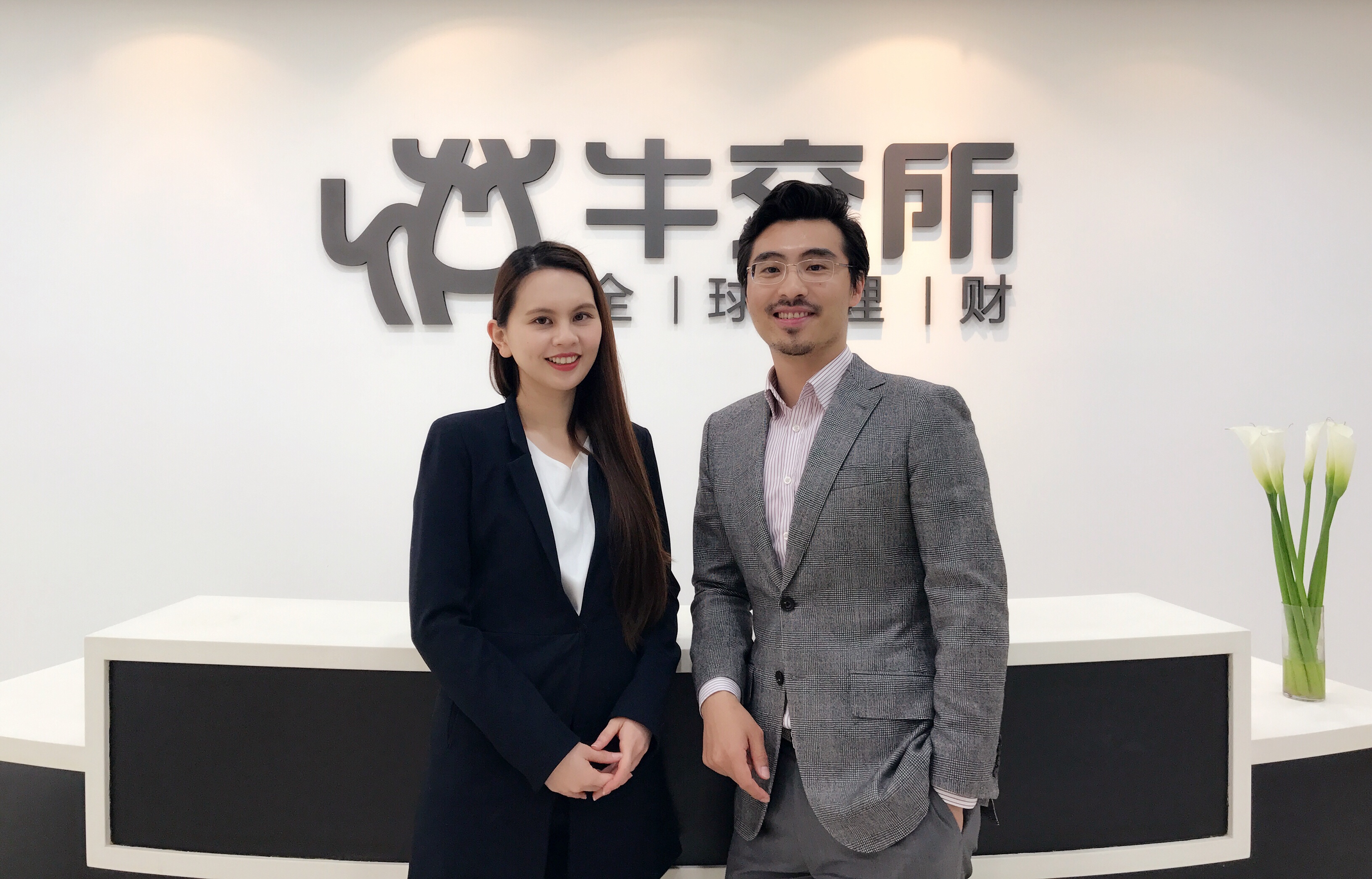
Photo credit: f11photo / 123RF.
Every year, hundreds of thousands of Chinese students leave their country to study abroad. While overseas, they pay tuition, buy books, eat at restaurants, and pay rent. All of that requires one crucial step: moving Chinese yuan out of China.
“A lot of people are doing offshore financial planning because they’re going to have future liabilities denominated in US dollars or euros or pounds,” Weber Su, co-founder of fintech startup Niu Jiao Suo, tells Tech in Asia. That includes not only Chinese parents who want their children to study abroad, but also those who want to buy overseas property or “travel around the world in five years,” he says.
“We usually target this group of people,” he adds.
Since China’s sharp yuan-devaluation in 2015, about US$1.2 trillion has left the country.
The Beijing-based startup, founded early last year, has picked one hell of a time to start helping Chinese investors move their money abroad. Since China’s sharp yuan-devaluation in 2015, about US$1.2 trillion has left the country, according to Bloomberg Intelligence. In response, the Chinese government has tightened capital controls, especially over the past year as China’s annual GDP growth slows to below 7 percent.
Restrictions on insurance products, mergers and acquisitions, and even bitcoin are all part of the government’s capital flight crackdown. For instance, there’s a US$50,000 limit on foreign currency per person per year in China.
However, that isn’t stopping Niu Jiao Suo, which connects Chinese retail investors or individuals with overseas mutual funds. Through the company’s app, users can invest in overseas funds of their choice, such as BlackRock, JP Morgan, and Franklin Templeton. The minimum investment amount is US$400. The upper limit, of course, is US$50,000.

Husband and wife co-founders of Niu Jiao Suo (left to right): Angeline Cai and Weber Su. Photo credit: Niu Jiao Suo.
“It actually gives us more attention, because all of a sudden you have a US$50,000 quota, renewed annually,” says Weber, explaining the impact of China’s capital controls. “That just conveys to an ordinary person that the quota is valuable. If you don’t use that it expires.”
In addition, Weber says, limits on capital outflows are incentivizing prestigious overseas funds, such as BlackRock, to consider small players like Niu Jiao Suo. “They’re targeting [China Investment Corporation],” he says, referring to a massive Chinese sovereign wealth fund. “Safe. The big players. If they have time, they go to the insurance companies – those can write really big tickets.”
“But due to the foreign exchange controls, even if they obtain really good sales leads, it doesn’t really lead to sales,” he explains.
To attract funds, Niu Jiao Suo bundles the small investments made through its app into a larger package. That’s transferred to asset managers once a day.
We do not want to open accounts for US tax residents
It’s important to note that the company itself doesn’t manage any money. When users top up their Niu Jiao Suo account, the money is sent to a custodian account managed by DBS Bank, one of Niu Jiao Suo’s partners. When users make an investment, the money is transferred accordingly. The startup is primarily responsible for internal clearing and settlement work, as well as conducting due diligence on its users – the investors.
“We need to make sure this guy […] is not a criminal,” explains Weber. The startup is using an API from China’s Ministry of Public Security that lets it key in Chinese national ID numbers and run background checks.
Niu Jiao Suo also checks to see if users are US citizens or US tax residents. “We do not want to open accounts for US tax residents [because] we have to file taxes on behalf of them,” he says.
For its trouble, the startup takes a 1 percent subscription or redemption fee, which charges investors when they buy or sell shares, respectively. From certain asset managers, Niu Jiao Suo is also able to take a cut from their management fees, which is used to pay fund managers.
Caution ahead
Niu Jiao Suo’s concept of aggregating small investments into one lump sum isn’t new. Acorns, a US-based company founded in 2012, lets users invest even smaller amounts of money – or what’s known as ‘micro-investing’ – by rounding up expenses, such as a cup of coffee, and investing the difference.
Moneybox, an app launched last year, is another micro-investment startup.
A slew of other Chinese startups, such as Jimubox and Tiger Brokers, cater to Chinese retail investors who want to invest in overseas stocks and securities.
However, as Chinese officials continue to clamp down on capital outflows, these cross-border investment startups might start to feel the squeeze.
“From the regulatory perspective, the focus on the personal allowance will become increasingly rigorous,” Jolyon Ellwood-Russell, Hong Kong-based trade finance and fintech partner at Simmons & Simmons, tells Tech in Asia.
“So yes it’s a great idea […] but they need to be cautious from the lessons learned from of likes of bitcoin, insurance products, and Union Pay restrictions,” he says, referring to Niu Jiao Suo. “It’s going to receive scrutiny if their product is perceived as getting around capital controls.”
For Niu Jiao Suo, its business is still in early stages. Its app went live last July and currently has “thousands of users,” though the startup declined to disclose an exact number. In March, Niu Jiao Suo announced a US$5 million series A round led by Gobi Partners, an early-stage venture capital firm focusing on Chinese and Southeast Asian tech startups.
This post This fintech startup is helping Chinese people move their money abroad appeared first on Tech in Asia.
from Tech in Asia https://www.techinasia.com/niu-jiao-suo-profile
via IFTTT
No comments:
Post a Comment